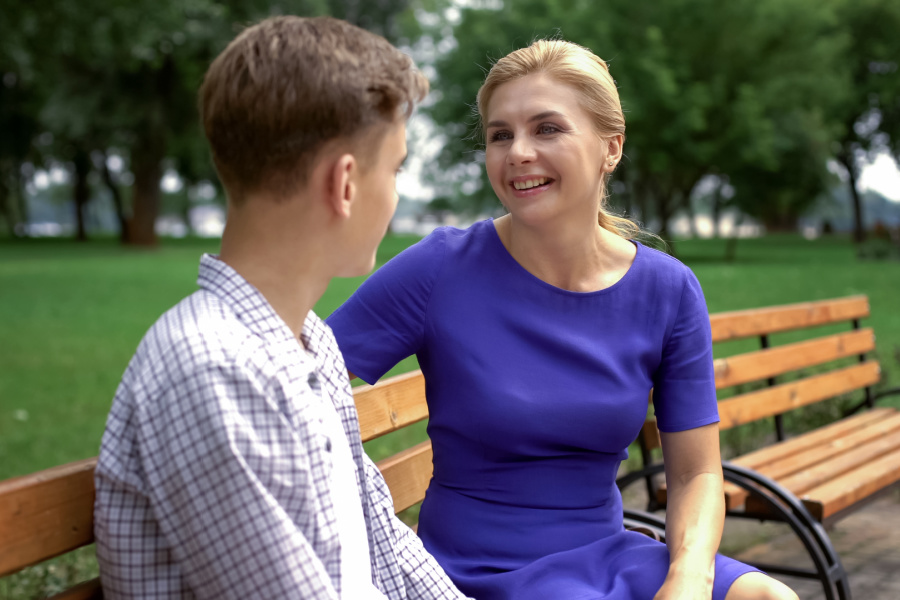
Attention deficit hyperactivity disorder (ADHD) can sometimes lead to misunderstandings, frustration, and tension in your closest relationships. However, with the right strategies, it’s possible to create a stronger, more positive, and happier partnership.
The symptoms of attention deficit hyperactivity disorder (ADHD or ADD)—such as distractibility, disorganization, and impulsivity—can create challenges in many areas of adult life. But these difficulties can be especially tough in close relationships, particularly when ADHD has gone undiagnosed or untreated.
If you have ADHD, you might often feel criticized, nagged, or micromanaged by your partner. No matter what you do, it can seem like nothing is ever good enough. You may feel disrespected or not seen as an equal adult, which can lead you to avoid your partner or say whatever is needed just to keep the peace. You might even wonder where the person you originally fell in love with has gone.
On the other hand, if your partner has ADHD, you might feel lonely, ignored, or overwhelmed by carrying most of the responsibilities. It can be exhausting to constantly remind or prompt them because they don’t seem to follow through on their promises. Sometimes, it might feel like your partner just doesn’t care.
These feelings from both sides can create a damaging cycle. The partner without ADHD may become resentful and nag more, while the partner with ADHD feels judged, misunderstood, and withdraws defensively. This cycle leaves both feeling unhappy and disconnected.
But it doesn’t have to be this way. By understanding how ADHD affects your relationship and learning healthier ways to respond and communicate, you can break this pattern. With the right strategies, you and your partner can build a stronger, more supportive, and happier connection—bringing greater understanding and closeness to your relationship.

Improving your relationship begins with understanding how ADHD influences it. When you recognize how ADHD symptoms affect your interactions as a couple, you can start adopting healthier ways to respond. For the partner with ADHD, this means learning to manage symptoms effectively. For the partner without ADHD, it means finding supportive ways to handle frustrations that encourage and motivate, rather than discourage.
Difficulty Paying Attention: If you have ADHD, you might drift off during conversations, leaving your partner feeling ignored or undervalued. You may also miss key details or agree to things you don’t remember later, which can be frustrating for your loved one.
Forgetfulness: Even when focused, someone with ADHD might forget promises or important details—like a birthday or picking up an item. This can make your partner feel uncared for or that you’re unreliable.
Poor Organization: Challenges with organization can make it hard to finish tasks and can contribute to household clutter or chaos. Partners often feel like they’re constantly picking up the slack and handling more than their fair share of responsibilities.
Impulsivity: Blurting out thoughts without filtering can unintentionally hurt feelings. Impulsive behavior can also lead to risky or irresponsible choices—such as making unplanned purchases—that may cause tension, especially around finances.
Emotional Outbursts: Many people with ADHD struggle to regulate their emotions. You might lose your temper easily or find it difficult to stay calm during discussions. This can leave your partner feeling like they need to walk on eggshells to avoid triggering an outburst.
The first step to improving your relationship is trying to truly see things from your partner’s perspective. Even if you’ve been together for a long time or have had the same arguments repeatedly, it’s easy to misread your partner’s actions and intentions. You and your partner are likely more different than you realize—especially if only one of you has ADHD. And just because you’ve heard their concerns before doesn’t mean you’ve fully absorbed what they’re trying to communicate. When emotions run high, as they often do in ADHD-related conflicts, it’s even harder to stay objective and maintain perspective.
The best way to understand your partner is to ask them directly—and then listen. Choose a calm moment to sit down and talk when neither of you is upset. Let your partner share how they feel without interrupting to explain or defend yourself. When they’re finished, summarize what you’ve heard and ask if you understood correctly. Writing down the key points can help you reflect on them later. Then, when it’s your turn, ask your partner to listen to your feelings with fresh ears and an open heart.
Learn about ADHD together. The more both of you understand ADHD and its symptoms, the easier it becomes to recognize how it influences your relationship. You might experience an “aha” moment where many long-standing issues suddenly make sense. Knowing that an ADHD brain functions differently can help the non-ADHD partner avoid taking symptoms personally. For the partner with ADHD, gaining insight into what drives certain behaviors can be a relief—and it opens the door to managing symptoms more effectively.
Acknowledge how your actions affect your partner. If you have ADHD, it’s important to see how untreated symptoms might impact your partner’s feelings. If you don’t have ADHD, try to understand how nagging or criticism may make your partner feel. Avoid dismissing or invalidating your partner’s concerns simply because of how they express them.
Separate your partner’s identity from their symptoms or behaviors. Instead of labeling your partner as “irresponsible,” recognize forgetfulness or difficulty following through as symptoms of ADHD—not character flaws. The same goes for the non-ADHD partner—nagging often stems from frustration and stress, not from a lack of care or compassion.

After stepping into your partner’s shoes, the next step is to own your part in the relationship. True progress begins when you recognize how your actions contribute to the challenges you face together—and this applies to both partners.
While ADHD symptoms may spark certain issues, they aren’t solely to blame. How the non-ADHD partner responds to these symptoms can either create space for understanding and compromise or fuel misunderstandings and hurt feelings. Likewise, if you have ADHD, your response to your partner’s concerns plays a crucial role. Your reaction can either help your partner feel respected and heard or leave them feeling dismissed and ignored.
Many couples find themselves stuck in a frustrating parent-child pattern, where the non-ADHD partner takes on the “parent” role and the partner with ADHD feels like the “child.” This often begins when the partner with ADHD struggles to follow through on everyday tasks—forgetting to pay bills, leaving laundry piled up, or missing commitments like picking up the kids. As a result, the non-ADHD partner ends up shouldering more and more of the household responsibilities.
As the imbalance grows, resentment builds. It becomes harder to appreciate the positive qualities and contributions of the partner with ADHD. Meanwhile, the partner with ADHD senses this frustration and may feel defeated, dismissing their spouse as controlling or impossible to please. But there are ways to break this cycle.
For the Non-ADHD Partner:
For the Partner with ADHD:

